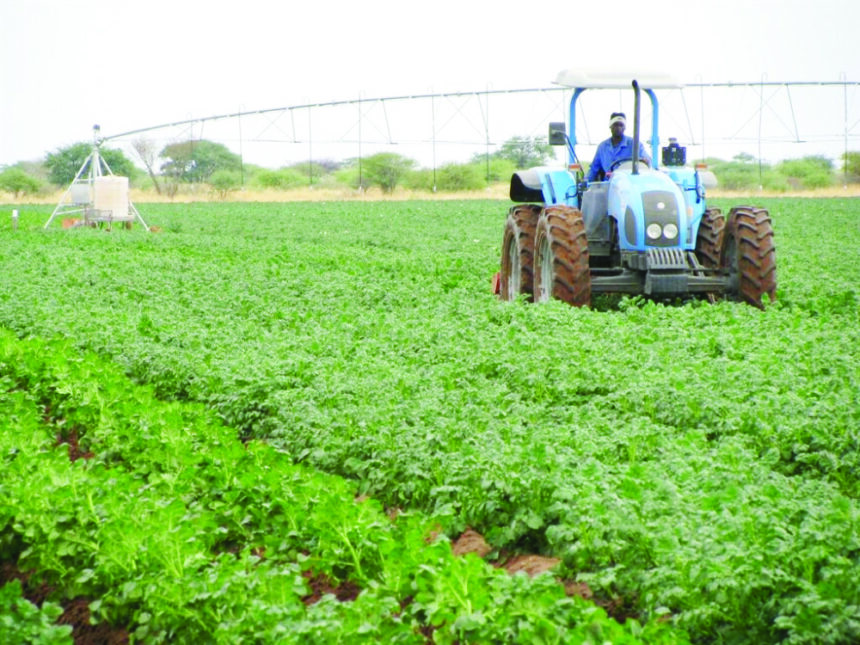Despite the critical role agriculture plays and the persistence to continuously develop the sector in Namibia, it still contributes only about 6% of the country’s gross domestic product (GDP). This is while more than 70% of the population relies on it for their livelihoods.
The Namibia Statistics Agency (NSA)’s provisional census results announced recently show that Namibia has a population of
3 022 400. Therefore, 70% of
3 022 400 – the people relying on the agricultural sector for their livelihoods – is 2 115 680.
A stark contrast between what the sector produces and what it still imports underscores a significant economic disparity.
This discrepancy is that the national population dependent on such a small output will inevitably lead to persistent poverty and inequality.
This analysis was pointed out by Ombu Capital founder Vetumbuavi Mungunda last week.
“You have 70% of the population living off only 4% or 5% of the output. And this, in simple terms, is the source of our poverty, the source of our inequality. If we have such a big population depending on a very small output, we are going to have inequality. For us to deal with poverty and inequality, we need to increase the agricultural output and production,” he added.
Mungunda was speaking during a panel discussion at the 25th annual symposium organised by the Bank of Namibia (BoN) in the capital under the theme ‘Global Value Chains for Inclusive Development: How can Namibia Position its Agriculture Sector?’.
The event brought together experts to explore strategies to unlock Namibia’s agricultural potential in global markets.
Mungunda, who recently took up the position of chairman at the Namibia Breweries Limited board, did not hesitate to present burning issues in the agricultural sector. He pointed out that the need for an agricultural revolution is evident, as without increasing productivity and output, efforts to combat inequality will remain insufficient.
He observed that one major hurdle the agricultural sector faces is lack of access to funding.
“This lack of financial support hampers growth potential and innovation within the sector. There is a growing recognition that enhancing agricultural outputs is not just about increasing quantity, but also about improving quality,” Mungunda continued.
At the same event, agriculture minister Calle Schlettwein supported the fact that both commercial and subsistence agriculture are direct and indirect sources of income and livelihood for a significant part of the population, estimated at about 70%.
This is an attestation that broad-based growth in the sector impacts positively on the quality of life, jobs, prosperity and social transformation for the majority of people in Namibia.
The minister pointed out that the sector’s contribution to GDP has amounted to an average of 6% over the past five years, and as the sector contends with the impact of climate change, volatility in monetary policy and variable industry growth, real growth averaged 4.6% over the same calendar period.
“Direct employment in the agricultural sector is estimated at approximately 20%, the single-most important sector in terms of the job content with less skills demand, hence the high potential for inclusion and erosion of poverty through growth in the sector. By adding the food sector, the percentages edge towards 50%,” said Schlettwein. -mndjavera@nepc.com.na



